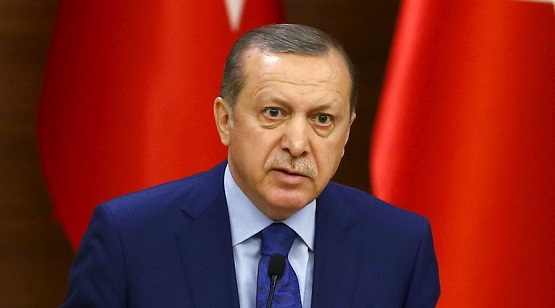Turkey has fired some 4,000 more people from the civil service and military as threats to national security, and banned several popular TV shows and the widespread withdrawal of funding for students and health services in the country.
According to state-run media agency Anadolu, the administration of Turkish President Reccip Tayyip Erdogan has recently issued two new ‘KHK' emergency measures, firing 3,974 people from state-run institutions
The expulsion is the second major purge since President Erdogan was granted new powers after a referendum in mid-April.
The clampdown targeted prison guards, clerks, academics, employees of the religious affairs directorate and 1,200 members of the armed forces including nearly 600 officers.
They were fired for suspected links to "terrorist organizations and structures presenting a threat to national security", according to a decree in the Official Gazette.
Foreign exchange students abroad saw their funding withdrawn as well, stranding them in various locales around the globe, and an estimated 18 foundations, 13 health groups and 14 associations have been closed.
On Wednesday more than 9,000 police were suspended and another 1,000 detained for alleged links to the network of the U.S.-based cleric Fethullah Gulen, whom Ankara blames for a coup attempt last July in which he has denied all involvement.
In all, some 130,000 people have been suspended or sacked from their jobs and more than 40,000 arrested in the aftermath of the failed putsch, which killed 240 people, mostly civilians.
The purges are taking a psychological toll in the country: Turkey Purge reports that 35 individuals affected by the dismissals and detentions have committed suicide. Those detained on accusations of supporting the coup attempt in some way face threats of torture and the withdrawal of legal services.
Tourism, including medical visits, account for about 10 percent of Ankara's GDP. Total tourism has dropped some 15 percent over the past two years, following reports of an increasingly autocratic administration pushing Turkish culture into a form more closely adhering to fundamentalist religious beliefs that are seen to limit the rights of women, ethnic and religious minorities and refugees.
Following the failed coup, Erdogan quickly blamed former close ally and religious figure Fethullah Gulen for the attempt, and demanded that the US extradite him to Ankara. The United States refused Erdogan's request, on the grounds that there was no proof of collusion between Gulen and the coup plotters. Gulen has denied any association with, or responsibility for, the deaths of some 240 people or the injuries of an additional 1,000 in the brief but bloody event.
LINK: https://www.ansarpress.com/english/6380
TAGS:































 online news tv
online news tv




